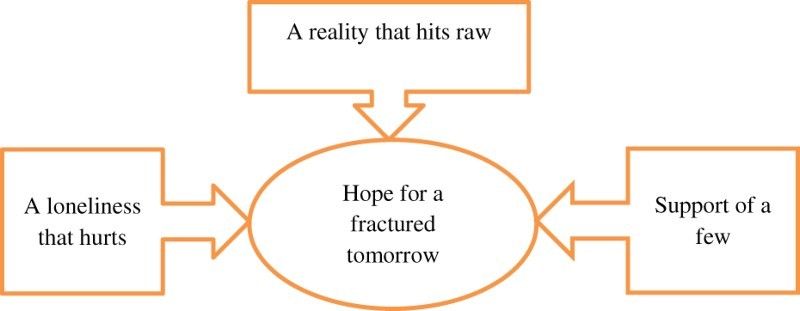The lived experiences of rural women diagnosed with the human immunodeficiency virus in the antenatal period.
IF 1.8
4区 医学
Q4 HEALTH POLICY & SERVICES
Sahara J-Journal of Social Aspects of Hiv-Aids
Pub Date : 2017-12-01
DOI:10.1080/17290376.2017.1379430
引用次数: 15
Abstract
Abstract Background: In South Africa, pregnant women are diagnosed with human immunodeficiency virus (HIV) at antenatal clinics and simultaneously initiated on antiretroviral treatment (ART). An HIV diagnosis together with the initiation of ART has an emotional impact that may influence how pregnant women cope with pregnancy and their adherence to a treatment plan. The aim of the study was to explore the lived experiences of women diagnosed with HIV in the antenatal period in a rural area in the Eastern Cape province of South Africa. Methods: A qualitative approach with a descriptive phenomenological design was utilised. The study applied purposive sampling to select participants from a local community clinic in the Eastern Cape. Ten semistructured interviews were conducted, transcribed and analysed using Colaizzi's framework. Results: Four themes formed the essential structure of the phenomenon being investigated: a reality that hits raw, a loneliness that hurts, hope for a fractured tomorrow and support of a few. Although the participants had to accept the harsh reality of being diagnosed with HIV and experienced loneliness and the support of only a few people, they had hope to live and see the future of their children. Conclusion: Women diagnosed with HIV during pregnancy are ultimately concerned with the well-being of their unborn children, and this concern motivates their adherence to ART. Women's lived experiences are situated in their unique sociocultural context, and although some known challenges remain, counselling and support strategies need to be informed by exploring context-specific issues and involving the local community.

被诊断患有人体免疫缺陷病毒的农村妇女在产前的生活经历。
背景:在南非,孕妇在产前诊所被诊断患有人类免疫缺陷病毒(HIV),同时开始抗逆转录病毒治疗(ART)。诊断出艾滋病毒并开始抗逆转录病毒治疗会对孕妇的情绪产生影响,可能会影响孕妇如何应对妊娠以及她们对治疗计划的依从性。这项研究的目的是探索南非东开普省一个农村地区被诊断患有艾滋病毒的妇女在产前的生活经历。方法:采用描述现象学设计的定性方法。该研究采用有目的抽样从东开普省当地社区诊所选择参与者。使用Colaizzi的框架进行了10次半结构化访谈,并进行了转录和分析。结果:四个主题构成了正在调查的现象的基本结构:一个触痛的现实,一个伤害的孤独,对破碎的明天的希望和少数人的支持。虽然参与者不得不接受被诊断为艾滋病毒的残酷现实,经历孤独和只有少数人的支持,但他们对生活和看到孩子的未来充满希望。结论:怀孕期间被诊断感染艾滋病毒的妇女最终关心的是未出生孩子的健康,这种关心促使她们坚持抗逆转录病毒治疗。妇女的生活经历处于其独特的社会文化背景中,虽然仍然存在一些已知的挑战,但需要通过探讨具体情况的问题和让当地社区参与,为咨询和支助战略提供信息。
本文章由计算机程序翻译,如有差异,请以英文原文为准。
求助全文
约1分钟内获得全文
求助全文
来源期刊
CiteScore
2.00
自引率
0.00%
发文量
3
审稿时长
40 weeks
期刊介绍:
The journal publishes contributions in English and French from all fields of social aspects of HIV/AIDS (care, support, behaviour change, behavioural surveillance, counselling, impact, mitigation, stigma, discrimination, prevention, treatment, adherence, culture, faith-based approaches, evidence-based intervention, health communication, structural and environmental intervention, financing, policy, media, etc).

 求助内容:
求助内容: 应助结果提醒方式:
应助结果提醒方式:


